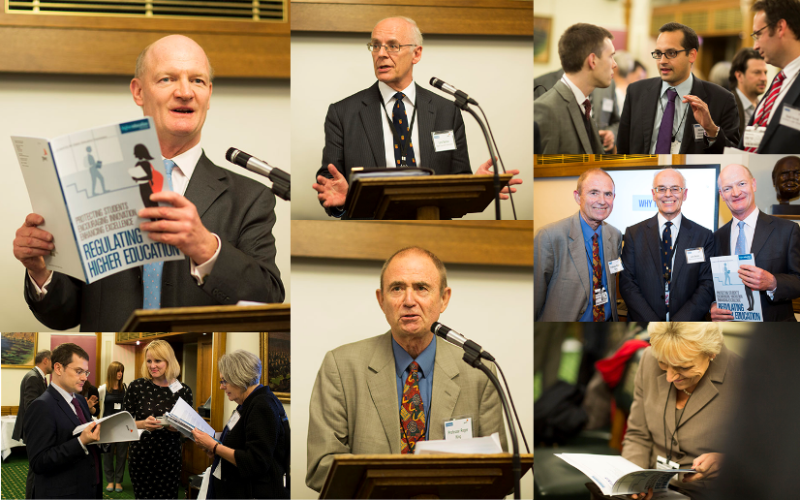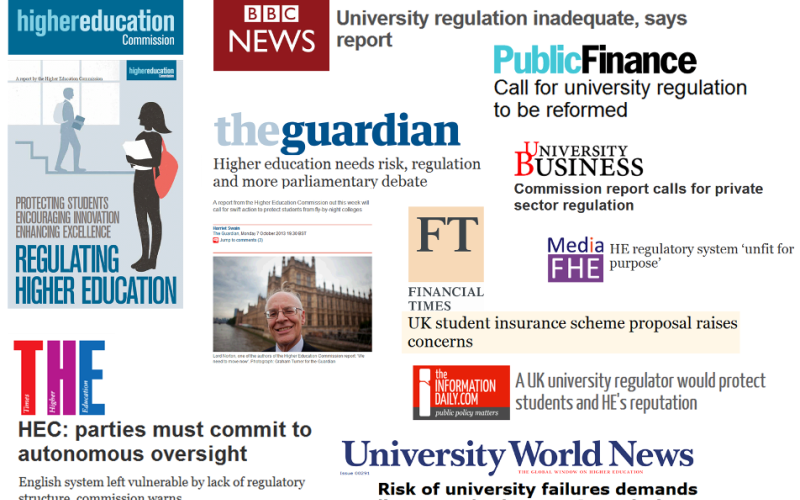REPORT: REGULATING HIGHER EDUCATION
The Higher Education Commission's latest report, 'Regulating Higher Education', was formally launched in Parliament on October 9th 2013.
DOWNLOAD THE REPORT HERE, or in the right hand side bar.
If you have any questions about the report, do please get in touch.
Press release
REPORT CALLS FOR URGENT LEGISLATION TO IMPROVE REGULATION OF HE IN ENGLAND
- Independent commission warns current HE regulatory system ‘outmoded and unfit for purpose’
- Reforms needed to protect students in new diversified HE landscape
- UK global reputation at risk as ‘piecemeal’ reform to regulation stifles investment
- Urging the Government to commit to higher education legislation. If time does not allow for a Bill in this Parliament, the Commission recommends that a commitment to new legislation should appear in all three major parties’ manifestos.
- The creation of a new, overarching regulator, building on HEFCE’s remit (renamed the Council for Higher Education – CHE. The CHE should incorporate OFFA, OSL (formerly SLC) and a new body, OCID (Office for Competition and Institutional Diversity). Responsible for ensuring complementarity of bodies across a pluralist system, the CHE should have contractual relationships with QAA, UCAS, and HESA.
- The development, by the new lead regulator (CHE), of a Common Regulatory Framework that can be applied to a range of providers to varying degrees, dependent on their provision and funding arrangements. The Common Regulatory Framework would create a kite mark to be awarded by the CHE, which institutions would receive once they had undergone a successful QAA review and subscribe to the OIA.
- Greater protection for students through the formation of a ‘protection’ or ‘insurance’ scheme, coordinated by the lead regulator, paid into by all providers, to insulate institutions against possible future financial difficulties or failure.






